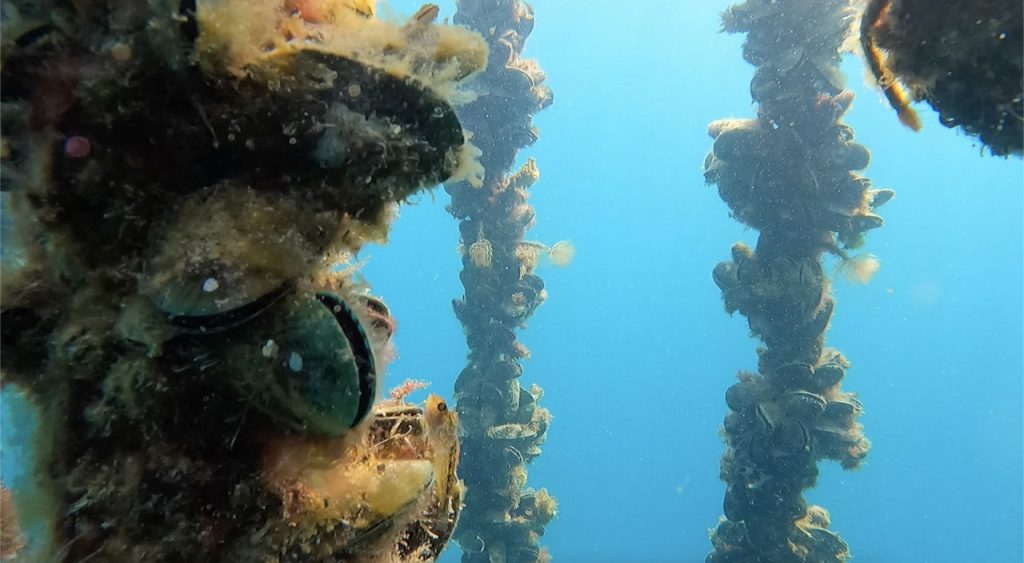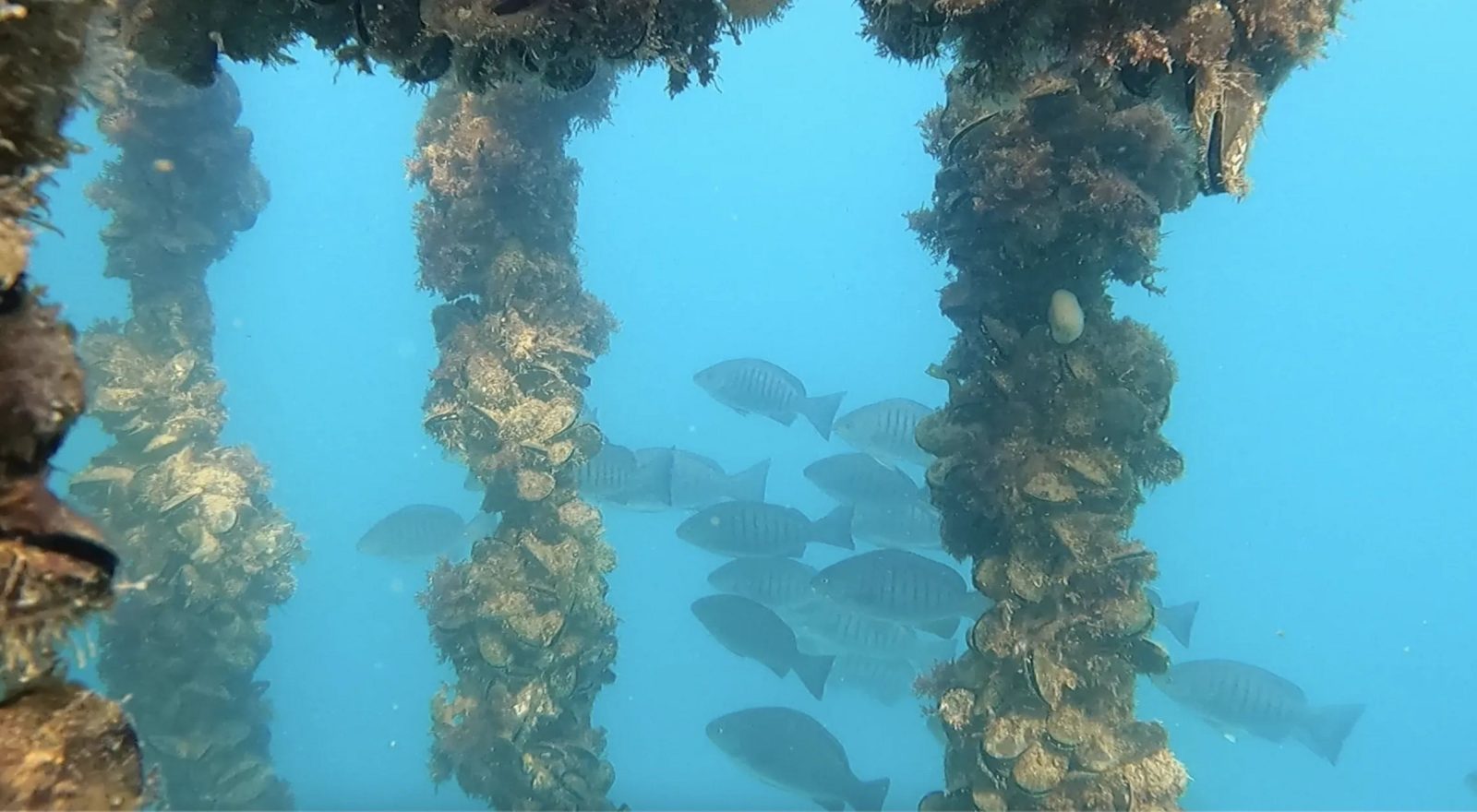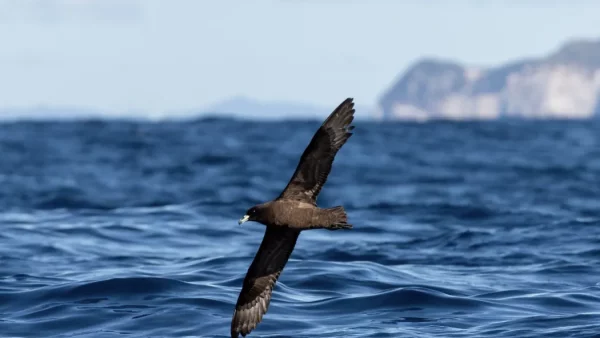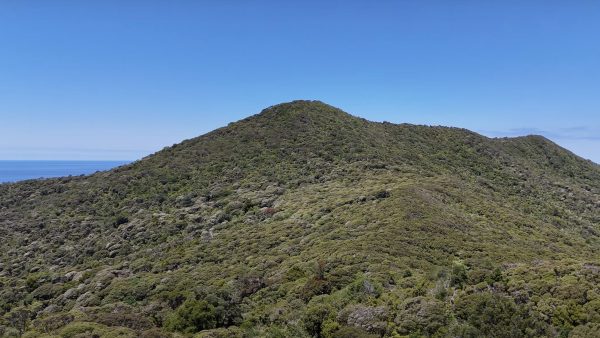Mussel and seaweed farming in the Hauraki Gulf can increase wild fish populations and boost diversity, according to new research.
A project by the University of Auckland, and the University of New England assessed the diversity and abundance of wild fish and invertebrates on farms growing kelp and mussels in the Hauraki Gulf and the Gulf of Maine compared to non-farmed sites.
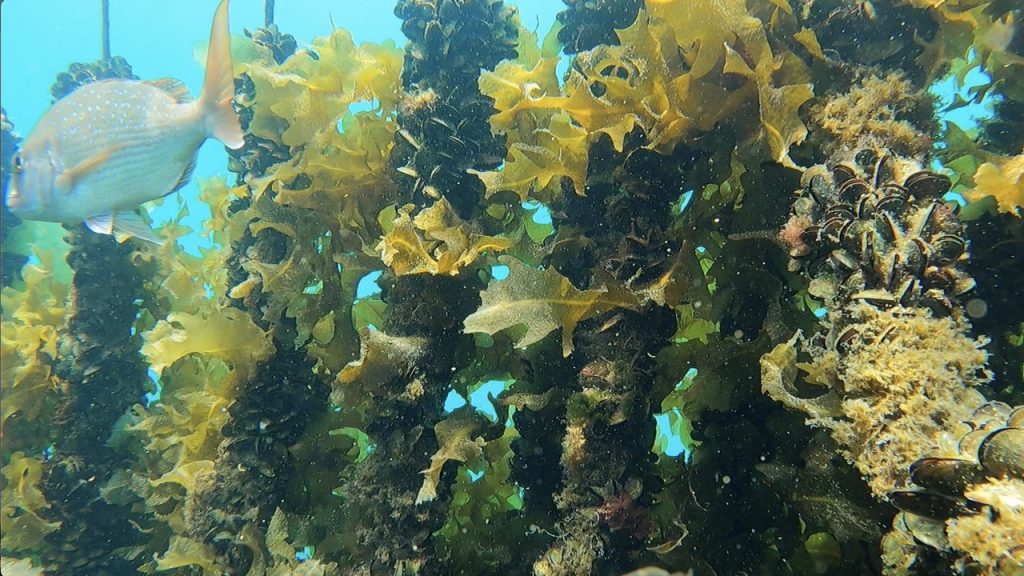
The study found mussel and seaweed farming can provide crucial habitats for marine species, in addition to kai for whānau.
Professor Andrew Jeffs of the University of Auckland says the fish populations found on mussel and kelp-mussel farms in the Hauraki Gulf were frequently greater than those at the non-farm sites, in both diversity and abundance.
“In examining the gut contents of snapper living inside and outside New Zealand green-lipped mussel farms, we found fish living on farm sites were eating more nutritious diets than those in natural habitats.” Jeffs said.
Jeffs highlights that the results show mussel and kelp farms can offer settlement and nursery habitats and an essential food source for wild fish species. “When implemented in the right places, aquaculture could bolster biodiversity and contribute to fisheries productivity.” he added.
Before this, few studies had quantified commercial aquaculture’s habitat value. Measuring habitat benefits in Maine and Aotearoa fills a critical gap in understanding the effects of seaweed and shellfish aquaculture on cold water ecosystems’ biodiversity, the researchers say.
Studying the two different environments, the researchers say, allows them to more accurately predict farming impacts on various ecosystems around the world.
The coalition government has introduced the Fast-Track Approvals Bill to expedite the approval process for significant infrastructure and development projects. The bill aims to streamline decision-making and reduce red tape, enabling faster and more affordable implementation of projects, like marine farms.
The bill establishes a one-stop-shop for various approvals under different legislations, ensuring that projects with substantial regional or national benefits can proceed more efficiently.
The bill will see its first reading in parliament this week.
